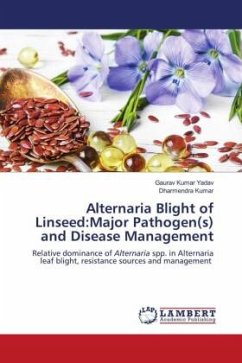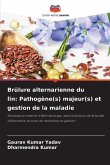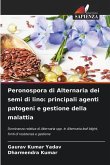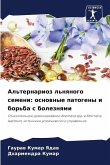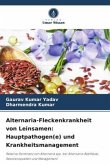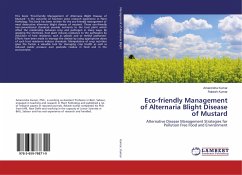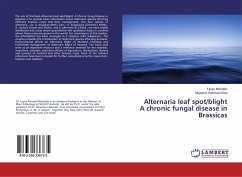Linseed (Linum usitatissimum) commonly known as flax is one of the oldest cultivated oilseed crop (in the world. Altrnaria blight of is an important disease of Linseed (Linum usitatissimum L) that hampers its productivity and oil content. During severe infections, spots coalesced and covered the large area of the leaves. Microscopic examination of pathogens in diseased tissue reveled that Alternaria linicola Groves & Skolko and Alternaia lini Dey were two fungi associated with the spots on leaves and capsules. Studies of relative dominance of pathogens associated with the diseased tissue revealed the dominance of Alternria linicola (95.86-98.63%) in comparison to A.lini (1.31-4.14%) during different growth period of linseed crop. Sixty-three genotypes were evaluated against this disease and only two genotypes namely rated as resistant. Chemicals and neen oil caked were sprayed to known the potential of the fungicides against Altarnaria blight. Minimum disease severity with maximum grain yield was recorded with three sprays of Mancozeb @ 0.2% followed by Propiconazole @ 0.1% and Hexaconazole @ 0.1%, respectively. Maximum yield was obtained with the spraying of Mancozeb @ 0.2%.
Bitte wählen Sie Ihr Anliegen aus.
Rechnungen
Retourenschein anfordern
Bestellstatus
Storno

